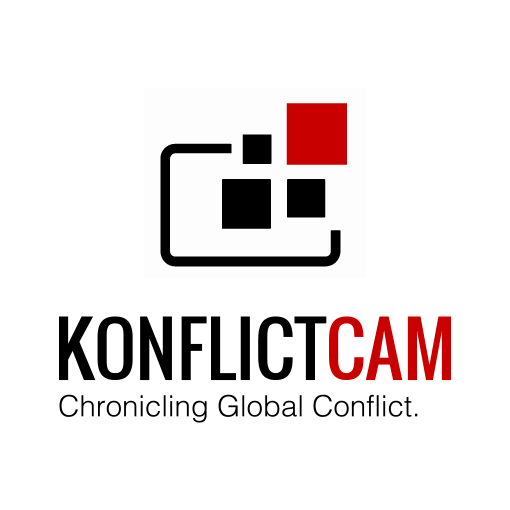Terms of Use
All photographs uploaded to Konflictcam must meet the following criteria in order to be accepted by moderators and become available on our website:
- All photographs must be relevant to at least one of Konflictcam's topic categories
- Photographs must not be doctored or edited to misrepresent reality
- Users must not violate copyright owned by other entities
- Photographic content endorsing violence will be rejected
- Graphic Images must be labelled accordingly
- Users must not identify the personal information of private citizens without permission
Copyrighted Content
Users must not upload photographs whose rights are owned by other entities which do not grant permission for the reproduction of their work. Where rights are in thepublic domain, users may upload photographs (with attribution) and contribute to Konflictcam's vision.
Do Not Doctor Photographs
Photographic content should not be manipulated or altered. Certain toning effects might be permitted where they improve the photograph’s viewing quality. Evidence that a photograph has been substantively tampered with are grounds for its removal and the suspension of your Konflictcam account.
Label & Categorise Your Photograph
Konflictcam users are obligated to meet minimum label requirements (see Categories & Tags) and are encouraged to classify their photographs –according to date taken, topic and location –as precisely as possible.
Graphic Images
Konflictcam will display graphic images (see Categories & Tags). We request that users label graphic images as such whenever the term applies to their uploads. Only users who register for accounts and confirm that they are over 18 years of age will be permitted to access Graphic Images. The Graphic Images label exists to protect our users from potentially distressing images, while still making them available to adults for the purposes of research, awareness, and human rights.
Captions
Caption length is limited to 1000 characters. Captions allow users to provide context for their photographs. Users are obliged to be as objective as possible when describing their content. Hate speech or propaganda is not permitted.
Respect Individual Privacy
Konflictcam was created to provide a public platform dedicated to documenting and examining major events which adversely impact human welfare. We do not intend for the website to be used for personal attacks on individuals. Where crime or wrongdoing does occur, it is acceptable to identify the organization responsible. However, we do not permit the naming of private individuals in photographs without their consent. We seek to promote accountability without putting individuals at risk.
Report Something
If you encounter offensive content please inform the Konflictcam team by clicking on ‘Report Photo'. If you have grounds to believe that copyright has been violated, please contact us. Please identify the relevant photograph with a link and provide some supporting evidence for copyright claim and we will address the issue.
We welcome feedback and suggestions from our community. Relevant queries can be sent to us using our Contact page and our team will respond as soon as possible.
Licencing
Konflictcam has made Creative Commons copyright licences available to our users. Creative Commons copyright licences give contributors the option of providing their work outside the traditional 'all rights reserved' and 'no rights reserved' licences. Please refer to Creative Commons for more information regarding their licences. All images uploaded on Konflictcam under Creative Commons copyright licencing will be appropriately labelled as such.
Konflictcam also offers traditional all rights reserved, no rights reserved and no known copyright licences for contributors. Images with an all rights reserved label may not be uploaded or reproduced without the consent of the owner.
In the instance that a copyrighted image falls under fair use, please provide a rationale. Examples of fair use rationales include criticism, comment, news reporting, teaching, scholarship, and research. Non-profit and educational purposes are favoured under fair use.

